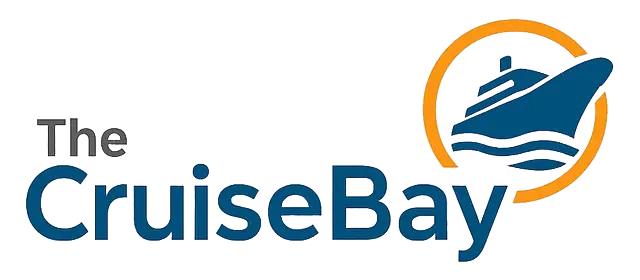It is commonly thought that cruises are one of the most pleasant ways to travel, filled with luxury and entertainment, and the ability to visit multiple cruise destinations during one trip. However, for the majority of first-time travellers as well as for some seasoned travellers, the question continuously arises – are cruises safe in 2025? The answer to this question is yes. The best part is that cruise safety has improved over the years, and cruise lines continue to adapt to new challenges to ensure passenger well-being.
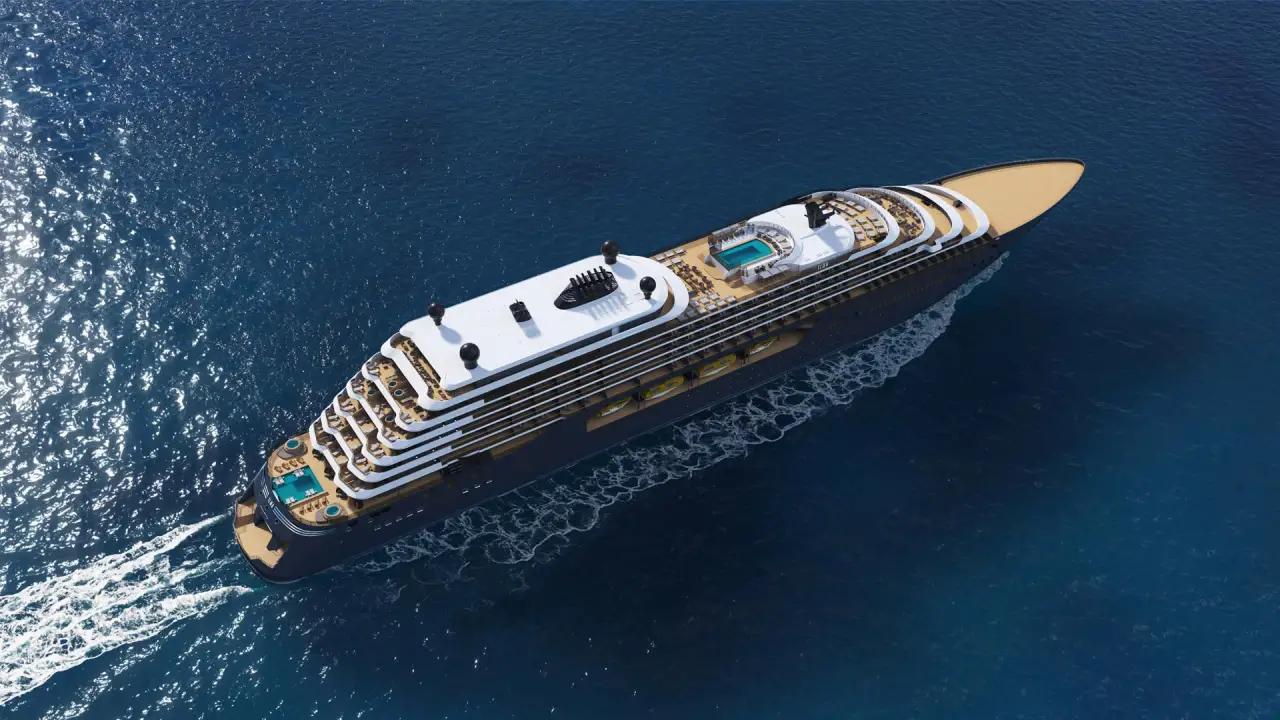
Are Cruise Ships Safe?
All the modern cruise lines operate according to updated safety, health, and security standards. Moreover, with the use of advanced technologies, international regulations, and excellent staff training, modern cruise ships do their best to protect the passengers. From medical care to storm protection, every part of a cruise is designed with passenger safety in mind. Therefore, the chances of cruise accidents are very rare.
Reasons Behind Cruise Incidents
While major incidents are rare, minor accidents and injuries can occur on cruise ships. Some common causes include:
- Slips and falls on wet decks.
- Accidents can happen at swimming pools, water slides, and sports courts.
- Improper food handling or contamination can cause gastrointestinal issues.
- Injuries can occur during activities booked in ports of call.
- Passengers may experience pre-existing conditions or new illnesses requiring medical attention.
However, these can be managed by following ship rules, wearing proper footwear, staying alert in crowded or wet areas and taking precautions while eating or drinking.
Health and Safety on Cruises
Though the risk is low given strict sanitation measures, passengers can get sick on a cruise, just as they can in any united community. The most common reason is norovirus, an extremely contagious gastrointestinal illness. But these risks can be reduced or eliminated as cruise lines implement strict health protocols, including:
- Sanitizing and cleaning of public spaces are often done.
- Advanced air filtration systems.
- Hand sanitation stations are all over the ship.
- Health checks before boarding.
What passengers can do: Wash their hands especially well, stay hydrated and use caution with hygiene while in buffet lines or on shore excursions.
Do Cruise Ships Have Doctors?
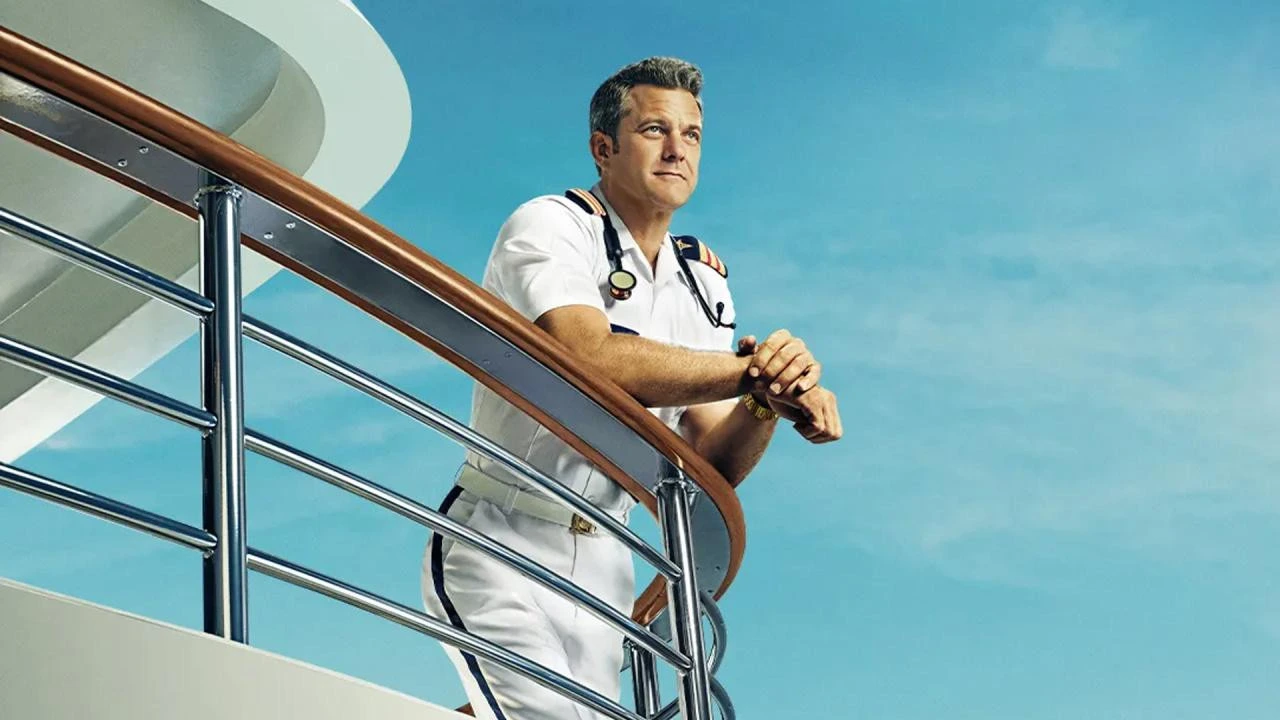
Yes, all of the major cruise ships have a medical center with doctors and nurses 24 hours per day on board. They are capable of treating ordinary illnesses, non-life-threatening injuries and stabilizing emergency medical conditions while waiting for a patient to be transferred to a hospital if necessary.
Security and Law Enforcement on Cruise Ships
Cruise ships don’t have traditional police, but they do employ trained security teams. These officers handle onboard incidents, monitor surveillance cameras, and coordinate with local authorities when docked.
Cruise Safety Rules and International Regulations
The cruise industry is regulated internationally and nationally for safety and security. Key regulatory bodies include:
- International Maritime Organization (IMO): This agency establishes international rules for cruise safety, security and environmental performance.
- Flag-state Regulation: Cruise ships are registered in a particular country (its “flag state”), and that country has its regulations that the cruise must follow.
- Port State Control: When a cruise ship arrives in a port in a different country, it may be subject to inspection by the authorities of that country to ensure that it meets international and national standards.
- Cruise Line Policies: Each cruise line is required to maintain its unique safety and security policies and procedures, which, in some cases, exceed the minimum requirements of federal regulation.
Onboard Safety
Beyond regulations, cruise lines implement various onboard safety measures:
- Trained crew members.
- Muster drills.
- Ships are equipped with advanced fire detection and suppression systems, emergency communication systems, and evacuation plans.
- Security personnel, surveillance cameras, and controlled access points are used to ensure the safety and security of everyone on board.
Weather and Storm Safety
Modern cruise ships are designed and built to withstand severe weather conditions, including strong winds and heavy seas. They are equipped with sophisticated weather forecasting technology and highly trained navigation officers who can take measures to avoid the worst of a storm.
When Are Storms Most Likely During Cruises?
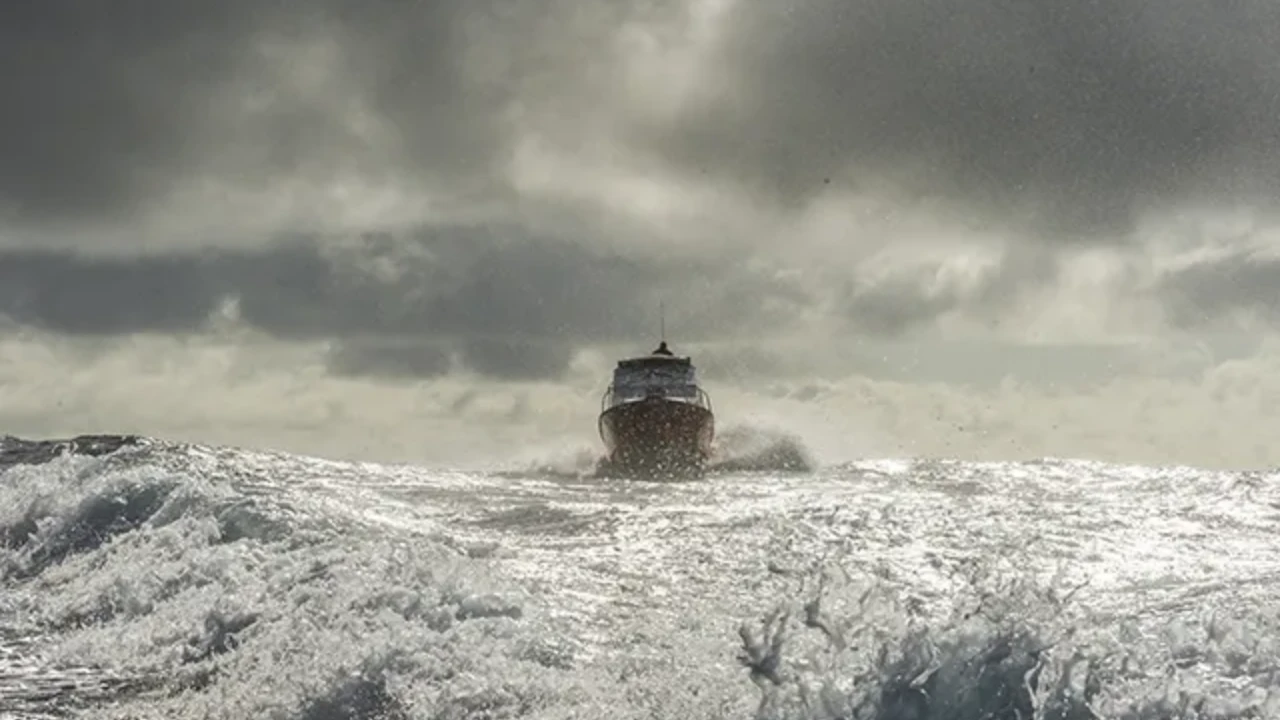
The likelihood of encountering a storm depends on the geographic region and the time of year while going on a cruise. For example,
- Hurricane season in the Caribbean: June to November.
- Winter storms in the North Atlantic: December to March.
Are Cruises Safe from Sinking During Strom?
Modern cruise ships are extremely safe, and the chances of sinking are very rare. They are built with strong, reinforced hulls, watertight compartments, and advanced navigation systems to avoid dangerous situations. While passengers may experience noticeable motion during a storm, the ship itself is designed to remain stable and safe.
Cruise ship safety tips in a storm include:
- Real-time satellite weather tracking
- Advanced navigation systems
- Flexible itineraries that allow rerouting to safer waters
How Safe Are Cruise Ships?
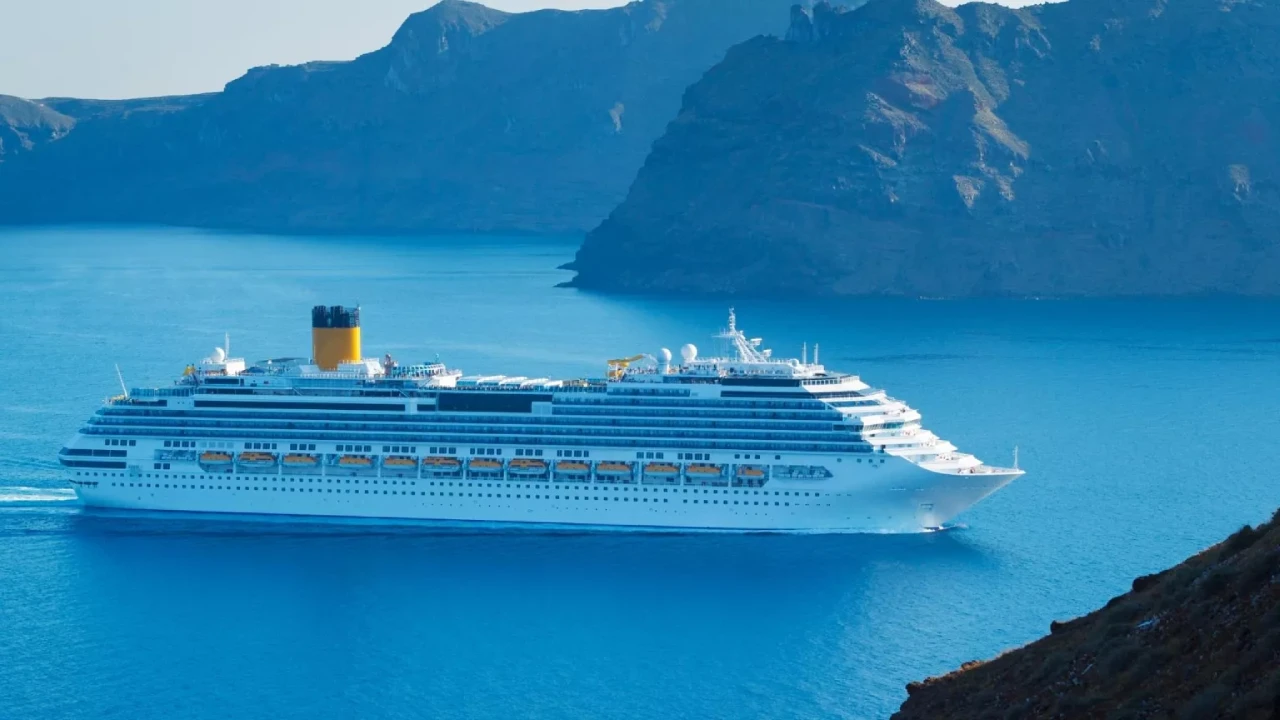
Cruise ships incorporate numerous design elements and safety regulations to ensure passenger well-being.
- Cruise Design: Modern cruise ships have high railings and balconies designed to prevent accidental falls. However, risky behaviour such as climbing on railings is a significant contributing factor in the few cases that happen. But cruise lines have strict rules against such behaviour.
- Lifeboats: Cruise ships are required by international regulations to carry enough lifeboats and life rafts capacity for every person on board, including passengers and crew. These life-saving appliances are regularly inspected and maintained, and crew members undergo extensive training on their deployment and operation.
- Muster Drills: Mandatory muster drills at the beginning of each voyage ensure that all passengers know their designated assembly stations and the procedures to follow in an emergency.
How Safe Are Cruises For Children?
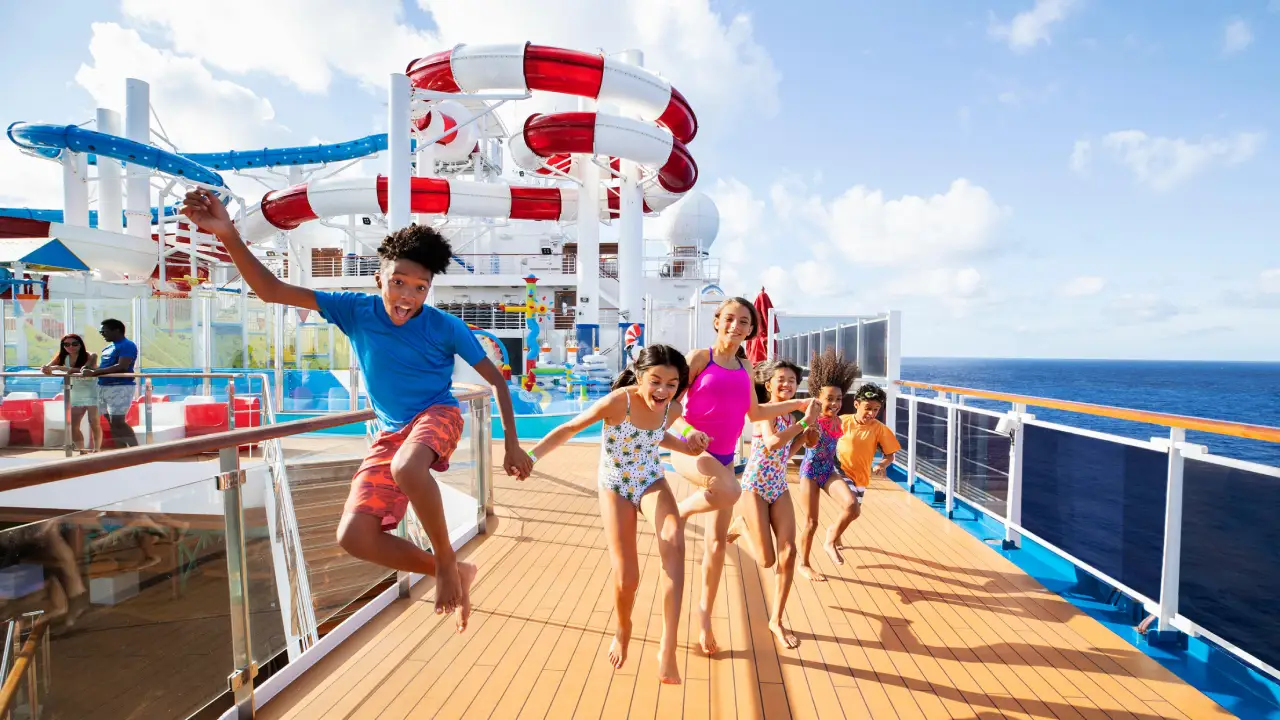
Cruises can be a good family vacation, and cruise lines have measures in place to ensure the safety of children.
- Supervised Children’s Programs: Most cruise lines have kids’ clubs catering to specific age groups and with trained employees to manage all activities while ensuring that the child is safe.
- Pool Safety: Lifeguards may not be present 24/7; however, there are generally regulations about pool use, and some ships even have specific children’s pool sections. Children should be closely monitored by their parents whenever they are in or around water.
- Safety Considerations Balcony: Balconies on modern cruise ships are metal and can be a hazard for infants and small children. Parents must make sure balcony doors are locked when not being used, and closely monitor children when they are on the balcony.
- Child ID: Many cruise lines give children wristbands that include emergency contact information.
- Reporting Missing Persons: If a child goes missing from a cruise ship, the cruise line has procedures to handle the situation.
Cruise Travel Safety Tips
To ensure a safe and enjoyable cruise vacation, it’s essential to be proactive and informed. By following some basic safety guidelines, passengers can enjoy their trip with confidence, whether travelling solo, with family, or with a group.
Cruise Travel Safety Tips for Seniors
- Choose cabins close to elevators for easier access.
- Use handrails on stairways and around decks to avoid slips.
- Carry essential medications in hand luggage.
- Consider travel insurance that covers medical needs at sea.
Cruise Travel Safety Tips for Older Adults
- Wear supportive, non-slip shoes when walking around the ship.
- Stay hydrated and pace during excursions.
- Inform the medical staff of any health conditions before sailing.
- Avoid standing on wet decks or crowded stairways.
Cruise Travel Safety Tips for Women
- Keep valuables secure and avoid leaving belongings unattended.
- Travel in groups or pairs, especially at ports.
- Be careful when accepting drinks in bars or lounges.
- Use the ship’s official excursions instead of unverified local tours for added safety.
Concluding: Is Cruising Safe?
Cruises in 2025 are safe for travellers of all ages. With modern technology, strict international safety laws, and trained staff, passengers can enjoy peace of mind at sea. Whether it’s weather, health, or onboard safety, cruise lines are well-prepared to handle challenges. By following simple safety tips, such as attending drills, staying healthy, and being aware at ports, passengers can relax and enjoy their trip.
Frequently Asked Question (FAQs)
Yes. Modern ships follow strict international safety standards, have trained crews, and use advanced technology to keep passengers secure.
It’s extremely rare because cruise ships are built with reinforced hulls, watertight compartments, and advanced stability systems, making sinking highly unlikely.
Falling overboard is very uncommon. Ships have high railings, safety barriers, and surveillance systems. Most incidents happen due to unsafe behaviour.
Yes. Every ship has a medical center with licensed doctors and nurses available 24/7 for emergencies and common health issues.
Yes. Seniors should take extra care by choosing accessible cabins, using handrails, carrying medicines, and pacing themselves during excursions.
Yes, cruises are generally safe for women. However, it’s best to travel in groups at ports, keep valuables secure, and stick to official ship excursions.
Yes. By law, every cruise ship must carry enough lifeboats and life jackets for all passengers and crew, with extra capacity as backup.
Minor slips, falls, poolside accidents, and shore excursion mishaps are the most common. Following safety rules greatly reduces these risks.
Yes. Captains closely monitor the weather, and ships can reroute to avoid storms. They are built to handle rough seas safely.
Yes. Cruise lines have supervised kids’ clubs and family-friendly facilities. Parents should supervise young children near pools and railings.
Attend safety drills, follow crew instructions, wash hands regularly, be cautious in ports, and keep belongings secure.
